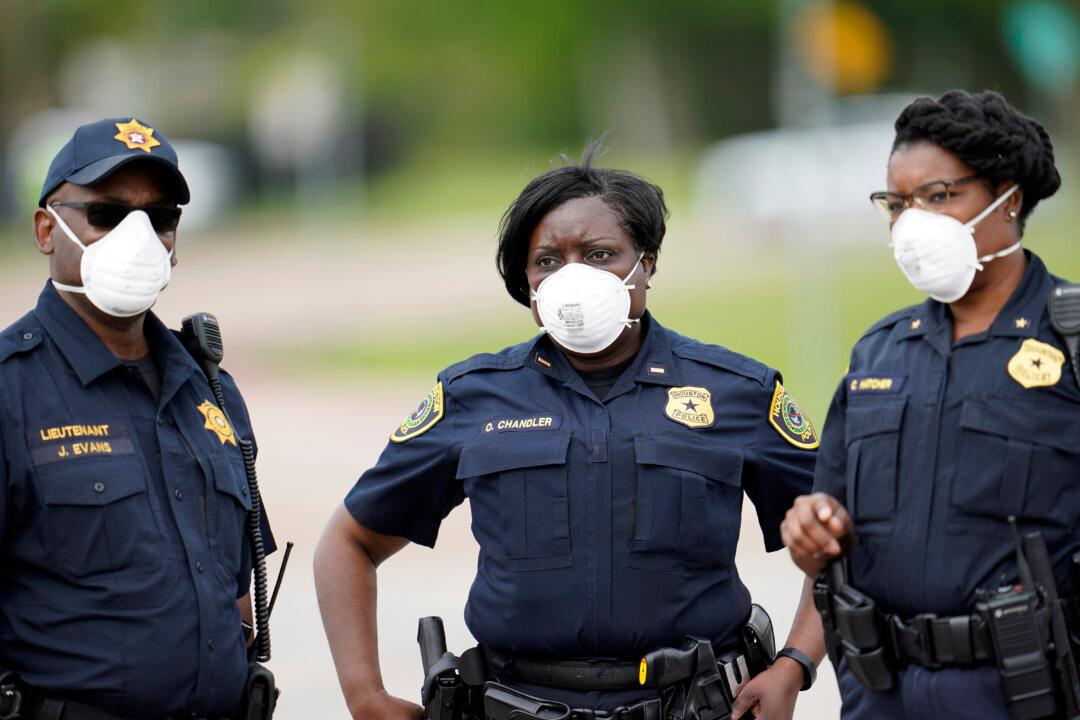Surgical face masks were effective in reducing the detection of viruses in exhaled breath, suggesting masks may help interrupt virus transmission.
The study was released on April 3 as a growing number of state and local officials urge members of the public to wear masks when leaving home amid the COVID-19 pandemic. The COVID-19 disease is caused by the CCP (Chinese Communist Party) virus, commonly known as the novel coronavirus.





